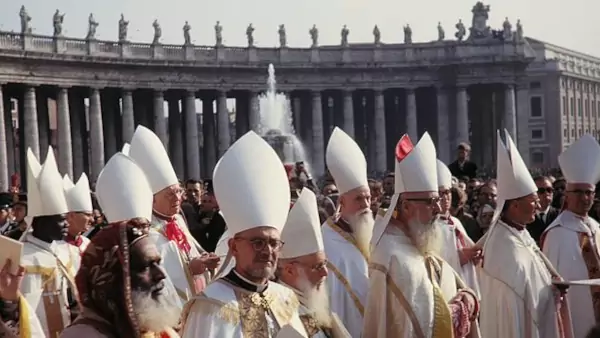Since the Council of Vienna, France (1311-1312), Pope Clement V, abolished the so-called "Order" of the Knights Templar, a type of monks and warriors, defending the Holy Land and opposing the enemies of the faith (this was approved by the pope on 29 March 1139). This Council also condemned the error of the Beguards regarding their teaching on spiritual perfection. It was clearly stated that the soul of man is one of the things that are constituted and completely united to it (this was done in opposition to John Olivi's Peter).
The Council of Constance (1414-1418) marked the end of the separation between the West. The condemnation of Wicleff's heresies on the Sacraments, on the Constitution of the Church and on John Huss's heresies on the invisible Church were debated and decided. (Church triumphant and happy), for the Chosen before [to be redeemed].
The Council of Basel-Ferrare, Florence (1431, 1438-1445) attempted and closely arranged the union of the Greeks and Armenians with the Pope, and made a clear statement about the Holy Spirit: "proceeds" [who comes from the Father and the Son]. He also explained the Eucharist and the new things [four after this life] (for the Greeks). Issued a decree on the sacraments (for the Armenians). Explained the Holy Trinity and the Incarnation (especially for the Jacobites).
Lateran Council V (1521-1517) gave a definition of the "ambiroa" or soul of people which is not one thing that all people share, but each person has his own, and is one of the creators of the body (i.e., itself) and is completely united with it, is also immortal [so it cannot be destroyed].








